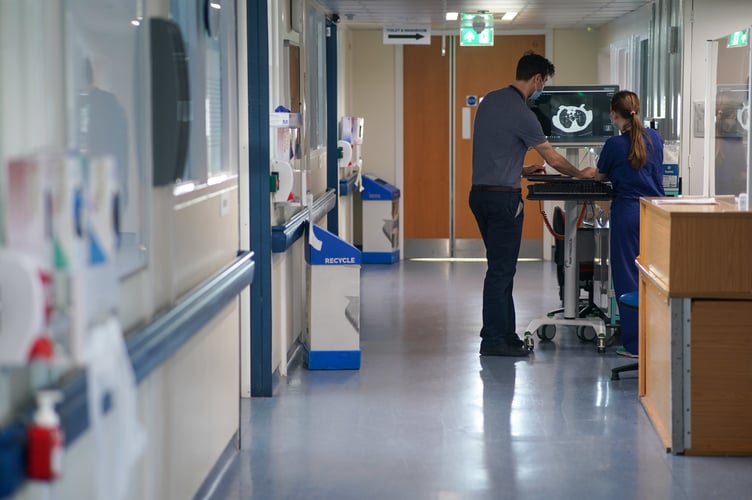Tens of thousands of patients were waiting for routine treatment at Royal Cornwall Hospitals in August, figures show.
In response to rising numbers across England, health charities have urged both major political parties to focus on cutting waiting lists.
NHS England figures show 47,174 patients were waiting for non-urgent elective operations or treatment at Royal Cornwall Hospitals NHS Trust at the end of August – down from 48,096 in July, but an increase on 44,257 in August 2022.
Of those, 2,653 (6%) had been waiting for longer than a year.
The median waiting time from referral at an NHS Trust to treatment at Royal Cornwall Hospitals was 13 weeks at the end of August – the same as in July.
Nationally, 7.7 million people were waiting to start treatment at the end of August.
The Nuffield Trust said it was alarmed by the most recent figures, with chief executive Thea Stein cautioning progress on cutting waiting times had "stagnated".
"Bringing down record waiting times is a central pledge of both main political parties but achieving this task still looks a long way off. It’s an unavoidable truth that whoever takes power at the next election will need to spend more on the NHS and healthcare," she added.
Separate figures show 1.6 million patients in England were waiting for a key diagnostic test in August – the same as in July.
At Royal Cornwall Hospitals, 12,720 patients were waiting for one of 13 standard tests, such as an MRI scan, non-obstetric ultrasound or gastroscopy at this time.
Of them, 5,213 (41%) had been waiting for at least six weeks.
Other figures show cancer patients at Royal Cornwall Hospitals are not being seen quickly enough.
The NHS states 85% of cancer patients urgently referred by a GP should start treatment within 62 days.
But NHS England data shows just 65% of patients urgently referred by the NHS who received cancer treatment at Royal Cornwall Hospitals in August began treatment within two months of their referral.
That was down from both 70% in July, and 71% in August 2022.
The Health Foundation also urged political parties to focus on long-term solutions.
Tim Gardner, assistant director of policy at the charity said: "Today’s data shows that despite the huge efforts of NHS staff to reduce waiting lists, patients are still experiencing unacceptably long waits for hospital treatment."
"Both major political parties have stressed their resolute commitment to the NHS in recent weeks. However, a national crisis over a decade in the making means that campaign slogans must be matched by concrete plans for improving care, retaining staff, and reforming our neglected social care system," he added.
Professor Sir Stephen Powis, NHS national medical director, said the NHS was facing increased pressure – with the busiest September ever for 999 calls, alongside ongoing industrial action.
However, he added: "Despite this pressure, it is clear from today’s figures that NHS staff are working incredibly hard to deliver for patients, with 10% more patients coming off the waiting list in August than the same month before the pandemic."




